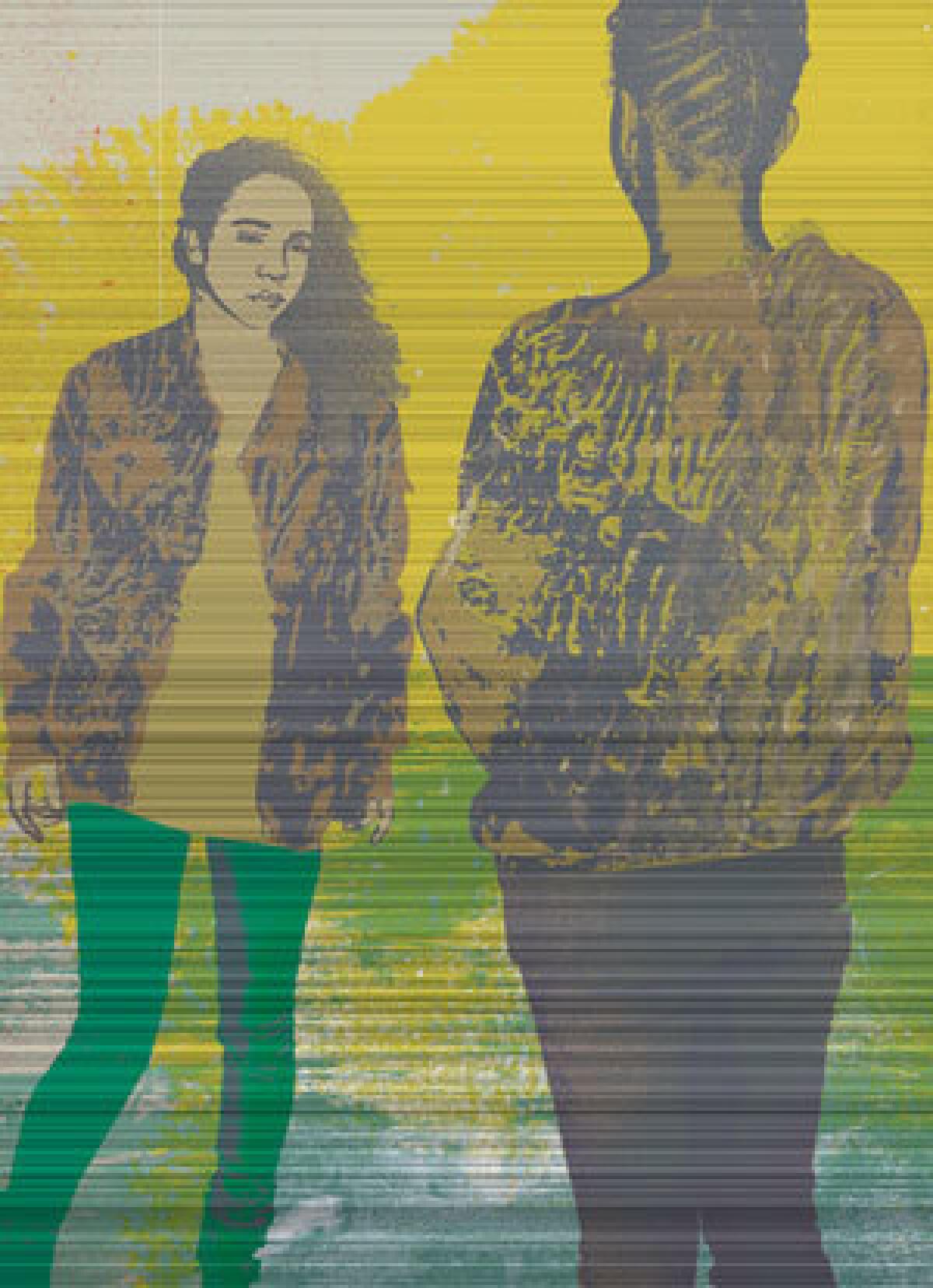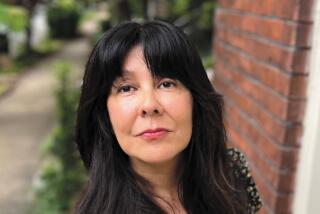Book Review: ‘Silver Sparrow’

Silver Sparrow
A Novel
Tayari Jones
Algonquin Books: 341 pp., $19.95
Tayari Jones has taken Atlanta for her literary terroir, and like many of our finest novelists, she gives readers a sense of place in a deeply observed way. But more than that, Jones has created in her main characters tour guides of that region: honest, hurt, observant and compelling young women whose voices cannot be ignored.
“Silver Sparrow,” her third novel, is an astonishing leap forward. Thehistory of two families is inextricably linked to 1980s middle-class Atlanta, and the women she has created are indelible — many readers may have lived with women like them, but they’re made achingly real to readers who haven’t.
The two daughters who narrate the novel, equally divided and equally yearning, share a father, James. He is a bigamist — but it is not that simple, and therein lies the story. Their mothers’ lives are separate, but Dana (the unacknowledged, the placated, the secret, the silver) is fierce in her desire to know her half-sister Chaurisse (not secret, not silver), and she befriends Chaurisse in a tense, fascinating series of events.
The two strands of the novel, the daughters’ voices, are not woven, which might seem too simple but their characters bump into each other, setting in motion the plot. First, the reader meets Dana Lynn Yarboro, the beauty and intellectual, eloquently furious that she cannot be recognized and loved in public. Dana accidentally meets Chaurisse when both girls are 14, after Atlanta’s science fair. Both girls are wearing waist-length rabbit fur coats — but Dana knows this is not coincidental. “It was the very same garment, right down to the crystal buttons on the sleeves. This was my sister… James was all over her face, from her narrow lips to her mannish chin. I looked so much like my mother that it seemed that James had willed even his genetic material to leave no traces.” Dana’s mother, Gwendolyn, was a beautiful young woman working as the first black gift-wrap girl in an Atlanta department store, only a month after the assassination of the Rev. Martin Luther King Jr. She is divorced after a short marriage and meets James when she wraps a knife as a gift for his wife. They fall in love, and she gets pregnant.
James never courted Laverne, we find out during Bunny Chaurisse Witherspoon’s narrative; Laverne, his wife, became pregnant at age 14 in a one-afternoon stand at James’ grandmother’s house. They married right away, and even though she lost that baby, they make a life together. Despite this, James takes Gwen to Alabama one day and marries her; thus the bigamy. (Laverne becomes pregnant at the same time.)
Secret daughter Dana first meets her grandmother Bunny on the day the older woman is dying, and on that day, her father hugs her in public. “You don’t need a dress rehearsal to know how to lay your head on your father’s shoulder, to inhale his tobacco scent. It takes no practice to know how to be someone’s daughter.” Dana and her mother live in an apartment in an increasingly shaky part of Atlanta. They get weekly visits, and they “surveil” Chaurisse and her mother, who live in a house with an attached beauty salon in a better part of the city.
Gerald Early, in his fine 1990 essay “Life With Daughters,” wrote of black women and hair, daughters and self-image, and these themes are all dramatically, sensitively and most important, lyrically investigated in “Silver Sparrow.” Hair and family and love are all ideas interwoven in delicate and very organic ways in the writing, and every conversation, every confrontation, every denial is absolutely believable.
And though Dana’s voice seemed so perfect and righteous that I was worried Chaurisse couldn’t match up, I was wrong. She just about broke my heart.
“I had been in kindergarten when I figured out that I wasn’t pretty… At Christmastime, the ten prettiest girls get to be in the angel choir. Plain girls twirl in the candy-cane dance. Ugly girls pass programs. I never handed out playbills, but I never for a minute thought I would be in the angel choir.”
The sisters measure each other initially by hair, when Dana maneuvers a meeting in a Rite Aid. Laverne has done a weave for Chaurisse for the first time. “What my mother stitched on to my head was sixteen inches of synthetic fibers, dark and shiny like motor oil.” And in the Rite Aid, Chaurisse sees Dana shoplift. “‘Silver’ is what I called girls who were natural beauties but who also smoothed on a layer of pretty from a jar. It wasn’t just how they looked, it was how they were.” Dana, Chaurisse says, “had a good twenty inches of the real thing, thick and heavy. A Barbie doll dipped in chocolate, she was the silverest girl I had ever seen.” The reader feels the tension ratchet up as Jones masterfully weaves the narratives, as Dana plays a dangerous game with Chaurisse, becoming a demanding “friend” who tests her and James and both mothers. It’s Jones’ talent for these two voices, so vulnerable and deep-hearted, and for plot — there is an aquamarine brooch removed from the dress of a dead grandmother and given to one girl, and there is a limo, and there are wigs “like the trophy heads of deer” — that makes her novel impossible to put down until you find out how these sisters will discover their own versions of family.
Straight’s latest novel is “Take One Candle Light a Room.”
More to Read
Sign up for our Book Club newsletter
Get the latest news, events and more from the Los Angeles Times Book Club, and help us get L.A. reading and talking.
You may occasionally receive promotional content from the Los Angeles Times.







